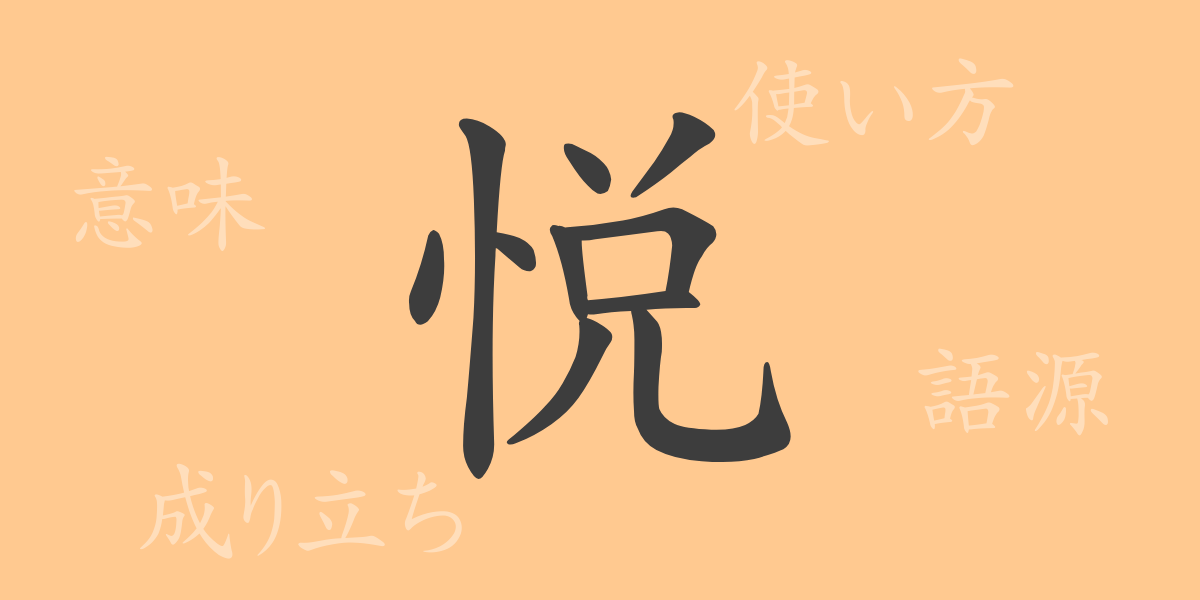“
The Japanese language has a rich vocabulary for expressing emotions and delicate sensations. Among them, the kanji “”悦”” (Etsu) has long been cherished as a character that skillfully represents the feelings of Japanese people. In this article, we will focus on this character “”悦,”” exploring its etymology, meaning, usage, and even the compound words and proverbs used in daily life. Please join us on this journey to discover the charm of this character.
The Origin of 悦 (Etsu)
The kanji “”悦”” is a character that originated in ancient China. Tracing its etymology, it is composed of “”忄”” (Risshinben), representing “”heart,”” and “”兌”” (Da). “”兌”” is one of the eight trigrams in ancient divination, meaning “”swamp”” and symbolizing joy and satisfaction. Therefore, “”悦”” is believed to have come to mean the joy of having one’s heart fulfilled.
The Meaning and Usage of 悦 (Etsu)
“”悦”” means “”to feel joy”” or “”to have one’s heart fulfilled.”” In general, it refers to the state of being satisfied by something and enjoying that state. In terms of usage, it is employed to express pleasant emotions in forms such as “”悦び”” (Yoroko-bi, joy), “”喜悦”” (Kietsu, delight), and “”悦楽”” (Etsuraku, pleasure). It can also be used to show satisfaction with someone’s actions or achievements.
Reading, Stroke Count, and Radical of 悦 (Etsu)
As a common kanji in Japanese, it is useful to remember the reading and form of “”悦””.
- Reading: The on’yomi reading is “”えつ”” (Etsu), and the kun’yomi reading is “”よろこ.ぶ”” (Yoroko.bu).
- Stroke Count: 12 strokes in total.
- Radical: 心 (Kokoro, or Risshinben).
Compound Words, Idioms, and Proverbs Using 悦 (Etsu) and Their Meanings
Compound words, idioms, and proverbs containing “”悦”” reflect the rich emotions that this character possesses. Here are a few examples:
- 喜悦 (Kietsu): The act of rejoicing and enjoying. Heartfelt joy.
- 悦楽 (Etsuraku): Enjoying from the heart. Feeling joy.
- 悦び勇んで (Yorokobi isamude): Being full of joy and energetic.
- 耳を悦ばす (Mimi -wo- yoroko-basu): Saying something pleasant to make someone happy.
Conclusion on 悦 (Etsu)
The kanji “”悦”” is a beautiful character that represents a state of feeling joy and satisfaction when one’s heart is fulfilled. From its origin to its modern usage, as well as the compound words and proverbs used in daily life, it is deeply rooted in various aspects of Japanese emotions and culture. Understanding the meaning behind this single character not only deepens our understanding of the Japanese language but also allows us to touch upon the spirituality of the Japanese people.
“

























